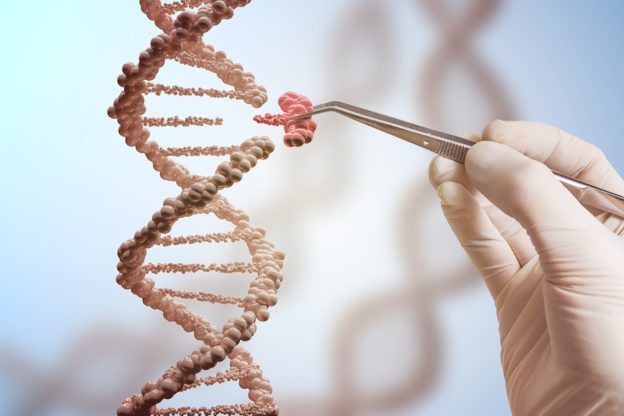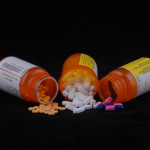By David Blyweiss, M.D., Advanced Natural Wellness
October 24, 2018
- Your genes are not your destiny
- Switch on your disease-fighting genes
- Shut down your cancer genes with broccoli… and more!
“Should I have my DNA tested to see what diseases I’m at risk for?”
This is a question I hear more and more often these days. And I understand the appeal. It’s human nature to want to know as much about ourselves as possible. DNA testing is a great way to get some of those answers.
So if you want to try it out, I’m not going to discourage you. But I do have a couple of observations to make.
- It is still a young science. You should be aware that not all these tests are accurate. Sure, they’ve gotten better over the years. But a lot of folks are still getting very different results when they send their DNA to two or more companies.
- Some of my patients worry excessively about their gene pool. Will they end up with Mom’s Alzheimer’s, Aunt Nancy’s heart disease or Grandpa’s prostate cancer? Adding a few more potential diseases to the table won’t do much to ease their concerns.
I always tell my patients… The genes you inherit are not your destiny.
They may have been passed on to you, but they don’t know what to do without some sort of guidance. This is where something called your “epigenome” comes in. It acts as a command center and determines which genes get turned on, and which get turned off…which proteins and enzymes get made and which do not.
Open your arteries, improve blood flow for a new health miracle...
Did you know your circulatory system has over 60,000 miles of arteries, veins and other blood vessels, if stretched end to end?
But as you age, your blood vessels undergo changes, which may cause them to stiffen, thicken and get clogged.
GOOD NEWS! Doctors have now identified a “Miracle Molecule” inside your arteries that helps OPEN your arteries and IMPROVE blood flow.
It’s what Dr. Valentin Fuster calls it, "One of the most important discoveries in the history of cardiovascular medicine."To you, that means...
- Healthy blood pressure
- Sharper mind and memory
- Skyrocketing energy and muscular strength
- Increased pleasure and passion in the bedroom
- Improved circulation to every cell and organ in your body
Go here to discover a new natural way to significantly boost the levels of this miracle molecule in YOUR body NOW!
This actually gives you a great deal of control when it comes to gene expression. It gives you the ability to switch “bad genes” off and “good ones” on. In the majority of instances you are in control of what happens.
And you won’t believe how easy it is to jump-start this process.
Switch on Your Disease-Fighting Genes
Just about everything you do in your life has a positive or negative effect on your epigenome. Not just smoking or drinking alcohol to excess or eating 150 pounds of sugar a year…..sit around and do nothing all day, and “bad genes” may be activated.
Get up and get moving, and you can shut those down while triggering activation of “good genes”.
For example, people who carry the FTO (obesity-promoting) gene variant have a 22% higher risk of obesity than those without it. But when people with this gene take part in regular exercise, it reduces expression of the gene. Ultimately, it cuts their risk of obesity by about 30% compared to their inactive counterparts.
But exercise doesn’t just change the expression of your fat genes. Levels of physical activity also alter epigenetics involved in cancer, inflammatory disease, diabetes, heart disease and more.
Are You Suffering From...
- Love handles and a pot belly
- Romance that isn't what it used to
- Forgetfulness and inattention
- Low (or no) strength and endurance
- A sex drive that's shifted into neutral...or worse
If so...you may have Mature Male Burnout. Click here to discover more about this unique condition and what you can do about it.
In other words, exercise does a whole lot more than just boost your heart health, lung capacity, metabolism and strength. It also influences the action of genes that could potentially save you from most of today’s deadliest health concerns.
Shut Down your Cancer Genes with Broccoli… and more!
The foods you eat can also play a positive – or negative – role on your epigenome. When you fill up with unhealthy fats and foods that are sugary, processed or refined, it’s going to turn on harmful gene expressions.
But fill your meals with fresh, whole foods and it can do just the opposite. They can activate genes that are protective for your health.
For instance, foods that contain sulforaphane can turn on tumor inhibitor genes. This explains why cruciferous vegetables like broccoli, kale, cauliflower, radishes and cabbage are such potent cancer fighters. So make sure to enjoy plenty of fresh, organic cruciferous veggies every day. Food is medicine; it is information directing your human software.
The epigallocatechin-3-gallate (EGCG) in green tea can also reactivate tumor inhibiting genes. (Unfortunately, not all green teas contain appreciable amounts of this compound. Your best bet is to use loose, organic green tea leaves. Or, you can take a green tea supplement.)
Resveratrol, found in grape skins, is especially notable for being able to turn on your SIRT1 gene. This is commonly called the “youth gene”. It helps your body produce more mitochondria… the energy factories that keep your cells powered up to youthful levels.
For the biggest impact, I suggest supplementing with about 100 mg. of resveratrol each day. You can add 25 mg. of pterostilbene (a close cousin to resveratrol) to amplify the effects.
Curcumin, the main compound in turmeric, is one of my favorites. Not only is it one of the best inflammation fighters available to you. It also has numerous epigenetic effects. It works on many different levels to change gene expression related to cancer, inflammation and Alzheimer’s disease.
To make sure you’re getting the full benefits that curcumin offers, I recommend taking it in supplement form. Look for one that is standardized to 90 to 95 percent total curcuminoids. And make sure it includes bioperine, a black pepper extract that substantially increases bioavailability.
Supplements are just that, they supplement your body’s needs if your diet is lacking.
SOURCES:
Kilpeläinen TO, et al. Physical activity attenuates the influence of FTO variants on obesity risk: a meta-analysis of 218,166 adults and 19,268 children. PLoS Med. 2011 Nov;8(11):e1001116.
Whayne TF. Epigenetics in the development, modification, and prevention of cardiovascular disease. Mol Biol Rep. 2015 Apr;42(4):765-76.
Khan MA, et al. Sulforaphane Reverses the Expression of Various Tumor Suppressor Genes by Targeting DNMT3B and HDAC1 in Human Cervical Cancer Cells. Evid Based Complement Alternat Med. 2015; 2015: 412149.
Nandakumar V, et al. (-)-Epigallocatechin-3-gallate reactivates silenced tumor suppressor genes, Cip1/p21 and p16INK4a, by reducing DNA methylation and increasing histones acetylation in human skin cancer cells. Carcinogenesis. 2011 Apr;32(4):537-44.
Ungvari Z, et al. Mitochondrial protection by resveratrol. Exerc Sport Sci Rev. 2011 Jul;39(3):128-32.
Boyanapalli SS, et al. “Curcumin, the King of Spices”: Epigenetic Regulatory Mechanisms in the Prevention of Cancer, Neurological, and Inflammatory Diseases. Curr Pharmacol Rep. 2015 Apr;1(2):129-139.







